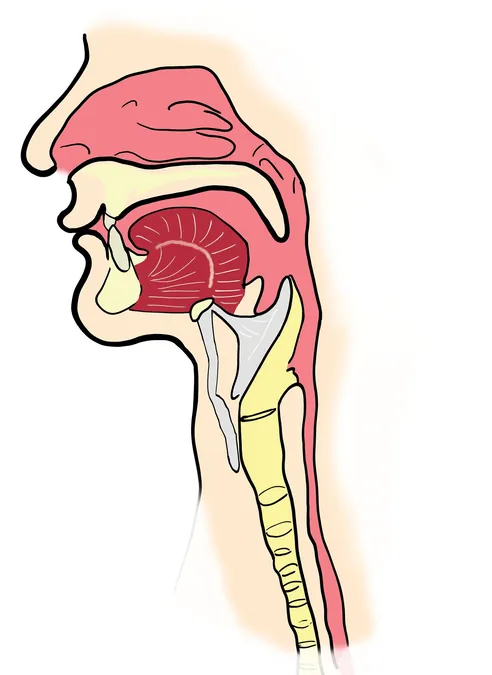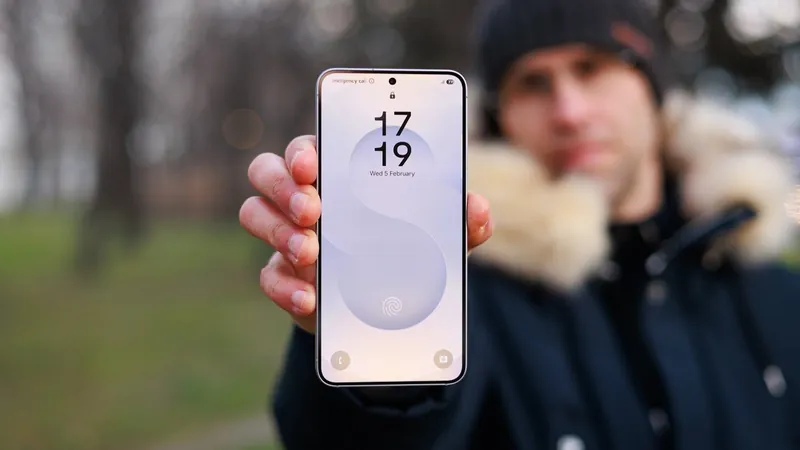
Groundbreaking AI Tool Diagnoses Throat Cancer Just by Listening to Your Voice!
2025-06-17
Author: Nur
Imagine if a simple conversation could save your life. Researcher Anthony Law, an assistant professor at Emory University, is revolutionizing throat cancer diagnosis using the power of artificial intelligence and the human voice. Before he even became an otolaryngologist, he understood the innate ability people have to sense something's off just by hearing someone's voice.
"When I got COVID in 2021, my mom knew something was wrong within seconds of our call. She could hear it in my voice," Law recalls. Today, he applies that same intuitive ability, combined with his specialized training, to identify voice ailments in patients—especially those with high risks of laryngeal cancer.
A recent visitor to his clinic exhibited a rough and strained voice, a sign to Law that he may be dealing with advanced-stage cancer. Early-stage laryngeal cancers are manageable, but the tricky part is that many conditions can mimic these voice changes. For untrained doctors, it’s like searching for a needle in a haystack.
Unlocking Voice Analysis Through AI
Almost all laryngeal cancer patients exhibit voice changes marked by a breathy and rough sound—a telltale sign that something isn't right with their larynx. But identifying these changes isn’t a skill that every primary care doctor possesses. Law wants to change that.
Using an AI model known as a deep neural network—similar to the human brain's architecture—Law is democratizing voice analysis. His goal? To equip primary care doctors with the skills to detect laryngeal cancer as accurately as a specialist.
"It's straightforward for trained laryngologists to hear someone has a mass in their larynx, but not for those without that specialized training," he notes.
The Challenge of Training the AI
Law's AI is impressively accurate, achieving about 93% success at identifying laryngeal masses, a reliable indicator of cancer. But creating the technology wasn’t easy. It took years of painstaking work to compile a diverse database of 15,000 voice recordings for effective training.
"We had to be careful not to embed biases in our model. If we excel at detecting cancer in one demographic but struggle with others, we risk leaving vulnerable groups unprotected," Law emphasizes.
Making AI Accessible in Clinics
To improve real-world application, Law developed an app that allows doctors to swiftly analyze patient voice data within the hectic environment of a clinic. The entire process only takes about four to five minutes, including a brief patient consent and a series of voice prompts.
"In six to eight months, we're planning a randomized trial to see if our app can influence referral times and ultimately improve patient outcomes. Will it allow us to detect smaller tumors earlier, and can that improve survival rates?" Law poses the essential questions.
A New Era in Medical Technology
As machine learning transforms healthcare, Law is at the forefront with his innovative app. He believes its success could pave the way for similar technologies that address a wide array of health issues. "We stand at a crossroads. This powerful tool can either remain limited to a select few or, if utilized correctly, democratize expert knowledge, improving access for countless patients. That’s why we're so excited about this journey," he concludes.

 Brasil (PT)
Brasil (PT)
 Canada (EN)
Canada (EN)
 Chile (ES)
Chile (ES)
 Česko (CS)
Česko (CS)
 대한민국 (KO)
대한민국 (KO)
 España (ES)
España (ES)
 France (FR)
France (FR)
 Hong Kong (EN)
Hong Kong (EN)
 Italia (IT)
Italia (IT)
 日本 (JA)
日本 (JA)
 Magyarország (HU)
Magyarország (HU)
 Norge (NO)
Norge (NO)
 Polska (PL)
Polska (PL)
 Schweiz (DE)
Schweiz (DE)
 Singapore (EN)
Singapore (EN)
 Sverige (SV)
Sverige (SV)
 Suomi (FI)
Suomi (FI)
 Türkiye (TR)
Türkiye (TR)
 الإمارات العربية المتحدة (AR)
الإمارات العربية المتحدة (AR)